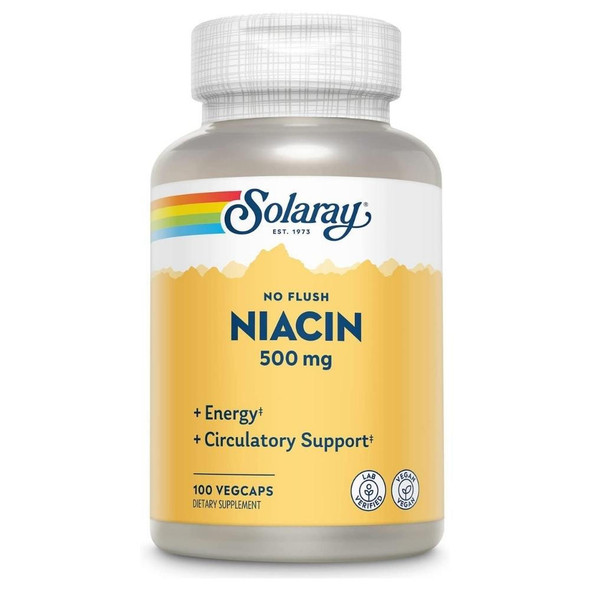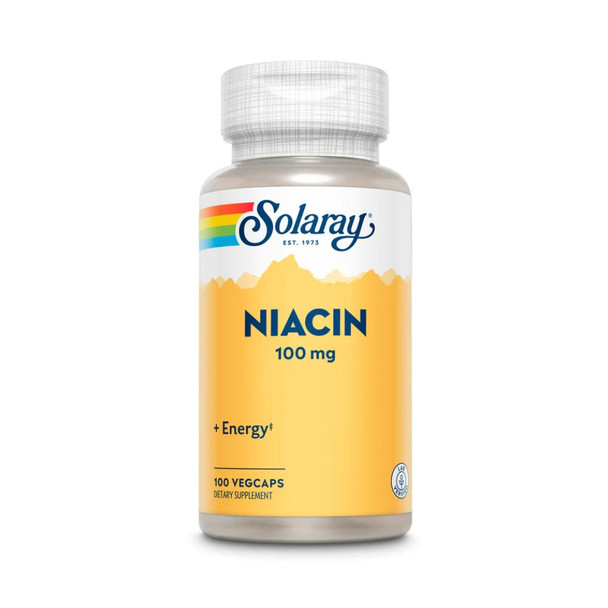
Solaray No Flush Niacin 500mg 100 Capsules
Solaray
$26.39
RRP:
Solaray No Flush Niacin 500mg 100 Capsules
Solaray No Flush Niacin Benefits
Supports Healthy Skin
Supports Cardiovascular System
Supports Circulatory & Nervous System
How Do I Take Solaray...

Solaray Vitamin B-1 100mg 100 Capsules
Solaray
$10.23
RRP:
Solaray Vitamin B-1 100mg 100 Capsules
If you are looking for a supplement that supports multiple system functions, check out Solaray Vitamin B-1. Solaray Vitamin B-1 help support healthy skin and...

Solaray Niacin 500mg 100 Count
Solaray
$12.32
RRP:
Solaray Niacin 500mg 100 Count
Solaray Niacin is a supplement that helps the body's conversion of protein, carbohydrates and fats into energy. This supplement may help support healthy metabolism...

Solaray CoQ-10 100mg 30 Capsules
Solaray
$11.35
RRP:
Solaray CoQ-10 100mg 30 Capsules
CoQ-10 is an antioxidant your cells use for growth and maintenance that is naturally produced in your body. Solaray CoQ-10 may help support your overall...

Solaray Rhodiola Extract 100mg 30 Capsules
Solaray
$16.47
RRP:
Solaray Rhodiola Extract 100mg 30 Capsules
Solaray Rhodiola Extract may help the body deal with stress and manage stress. This supplement will also support healthy energy as well as support stamina...

Solaray Hawthorn Extract 100mg 60 Capsules
Solaray
$7.64
RRP:
Solaray Hawthorn Extract 100mg 60 Capsules
Solaray Hawthorn Extract Benefits
Provides Nutritive Support For Normal & Healthy Heart
How Do I Take Solaray Hawthorn Extract?
Take one (1)...

Solaray Horsetail 880mg 100 Capsules
Solaray
$11.30
RRP:
Solaray Horsetail 440mg 100 Capsules
If you are looking for a supplement that supports your hair and nails, check out Solaray Horsetail. Solaray Horsetail supports healthy skin and nails and...

Solaray Kelp 550mg 100 Capsules
Solaray
$9.68
RRP:
Solaray Kelp 550mg
You've probably seen Kelp while at the beach. It's a marine plant and a type of brown seaweed. Kelp is oh so much more than just fish food though. Kelp is often referred to...

Solaray Spirulina 410mg 100 Capsules
Solaray
$13.75
RRP:
Solaray Spirulina 410mg 100 Capsules
Solaray Spirulina Benefits
Promotes Immune System Health
May Help Detoxify Blood
Made With Multiple Minerals
How Do I Take Solaray Spirulina?
Take one (1)...

